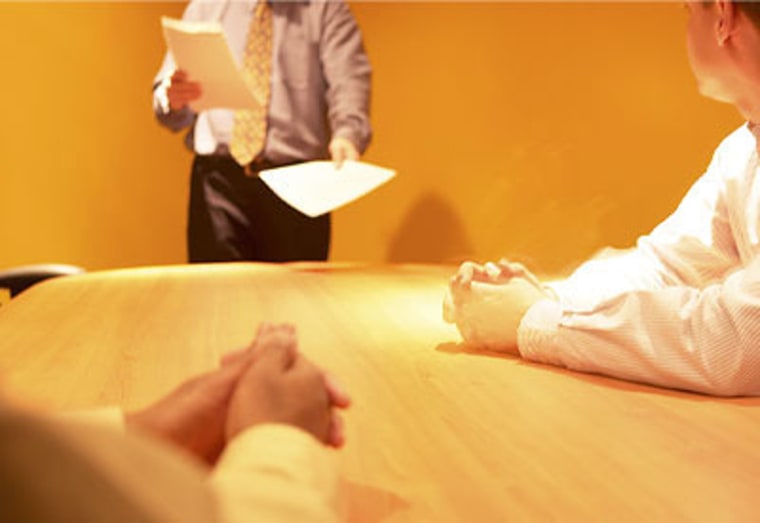Ask most people to describe meetings at work, and the adjectives they might use include "boring," "long" and "worthless."
"Hardly anyone does them well, and nobody thinks about how to improve them," says Jennifer Goodrich, president of Benchmark Leadership Training, a management training firm just outside of Chattanooga, Tenn.
But becoming a meeting master isn't the equivalent of searching for the fountain of youth. Just remember a few guidelines: Provide attendees with an agenda that includes the mission of the meeting at the top, stick to a time limit and have a decision-making process in place so the items discussed get accomplished. The most important rule: Cancel the meeting if you can't think of an actual problem to solve or decision that needs to be made.
Perhaps the most reviled workplace get-together is the weekly staff meeting. They tend to be longer than necessary, unstructured and boring. More often than not, they're completely useless, says Glenn Parker, co-author of Meeting Excellence: 33 Tools to Lead Meetings That Get Results. "The phrase we hear over and over again is, 'It was a waste of time,'" says Parker. "People feel there was no purpose other than, 'It's Tuesday morning, it's 9 a.m., so it's time for the regular staff meeting."
This is precisely the fate that one communications officer of a St. Paul, Minn., nonprofit suffers weekly. (She asked for anonymity because she still works there and fears retribution if she speaks unfavorably about the organization.) Her bosses break a number of meeting rules.
First, around 25 people attend, of which about half are the attorneys (the bosses); the rest are the support staff (accountants, office administrators, etc.), who don't all need to be there. Second, there's no agenda or specific purpose. Instead, the facilitator asks everyone what they've done throughout the week. The lawyers dominate the meeting, competing about who worked harder. Finally, the meeting tends to go over its allotted time.
Parker says it's a common problem that some people in a meeting don't really need to be there. One solution: If some people only need an update, don't force them to attend a long meeting — send an e-mail update instead.
No matter who attends, always distribute a written agenda so attendees know what to focus on and what information or materials to bring. Goodrich suggests implementing a rule: If participants aren't given an agenda before the meeting, they are not required to attend.
That's what Tim Cutshaw did. He's in charge of operations at the Arizona engineering firm Mesa Associates, and he recently implemented that rule, along with another helpful one: Prior to the meeting, he e-mails all participants a project update spreadsheet. That way, the discussion remains focused on new issues rather than an endless string of updates.
The results were impressive. "Before, we didn't get everything accomplished," says Cutshaw. "Now we finish on time or before time."
Another common problem: Getting off track. There are two ways to deal with this issue. Goodrich suggests using a miniature hour glass like the ones that come in board games. When the sand runs out, the speaker's time is up. Another approach: Speakers can be instructed to hold a specific object — say a mug or a ball — when talking. Only the person holding the object is allowed to talk.
Parker suggests a more direct approach. If the meeting leader — or another staffer — tends to go off topic or share personal anecdotes, don't deal with it in the meeting. Instead, have someone approach the person post-meeting and say: "Everybody enjoys the anecdotes about the industry, but I'm sure you realize people are very busy. We're all on deadline. It would be helpful if can we can complete the agenda on time." Another option: "We enjoy those stories, but we'd rather hear them after work over a drink."
Speaking of drinks, don't be afraid of serving snacks or non-alcoholic beverages during a meeting. Some managers worry it'll distract participants, but you need not worry. People who eat together feel more comfortable around each other.
Parker suggests jazzing up meeting food by having "all chocolate" meetings in the afternoon. If you're a health-conscious office, make healthy snacks the theme of the food. Many companies are global, so it's not unusual to have many ethnicities represented. That can make for a great opportunity to try out different cuisines.
Another Parker suggestion: Start and end meetings at odd times. Meaning, instead of calling for a meeting at 2:30, start it at 2:34. "It gets people's attention," he says. "It's another way of adding fun and spirit."
